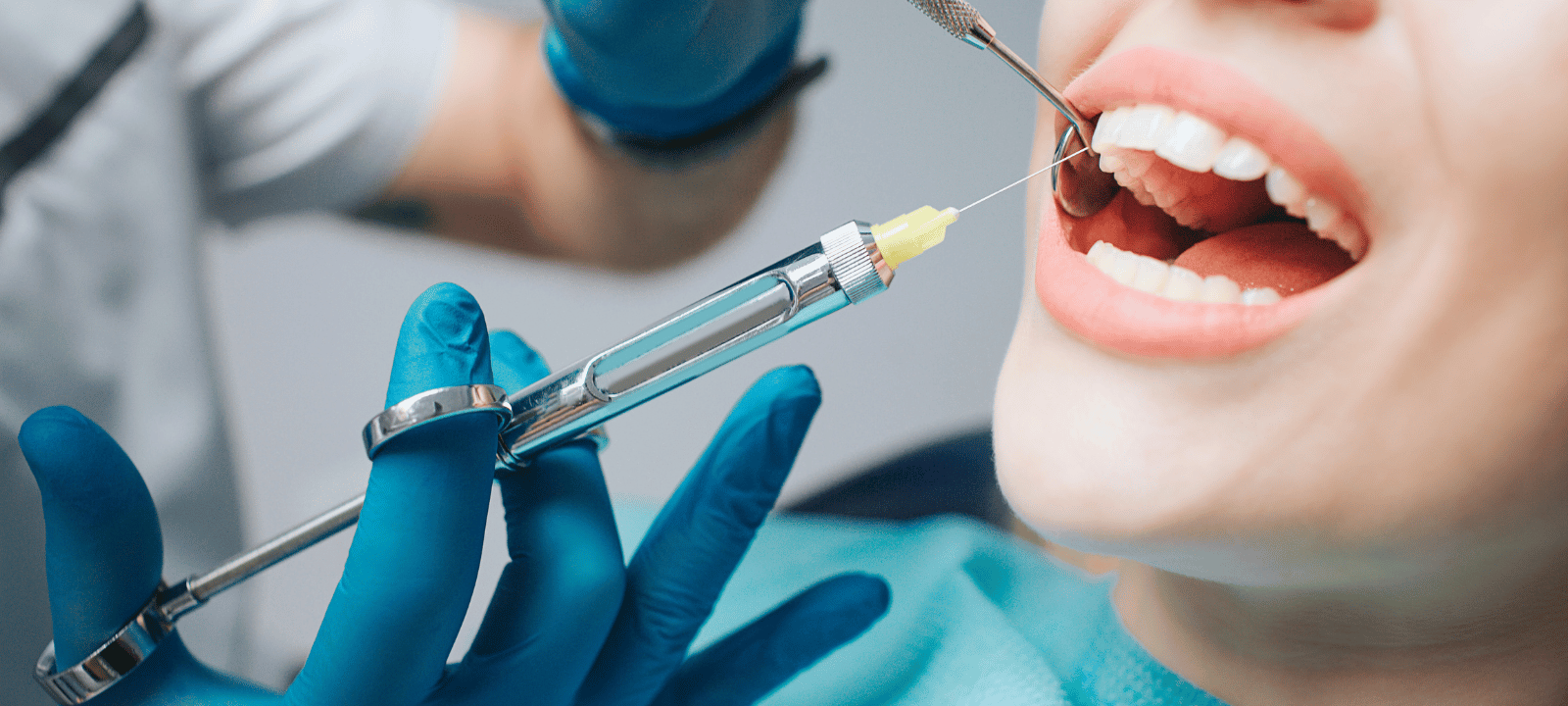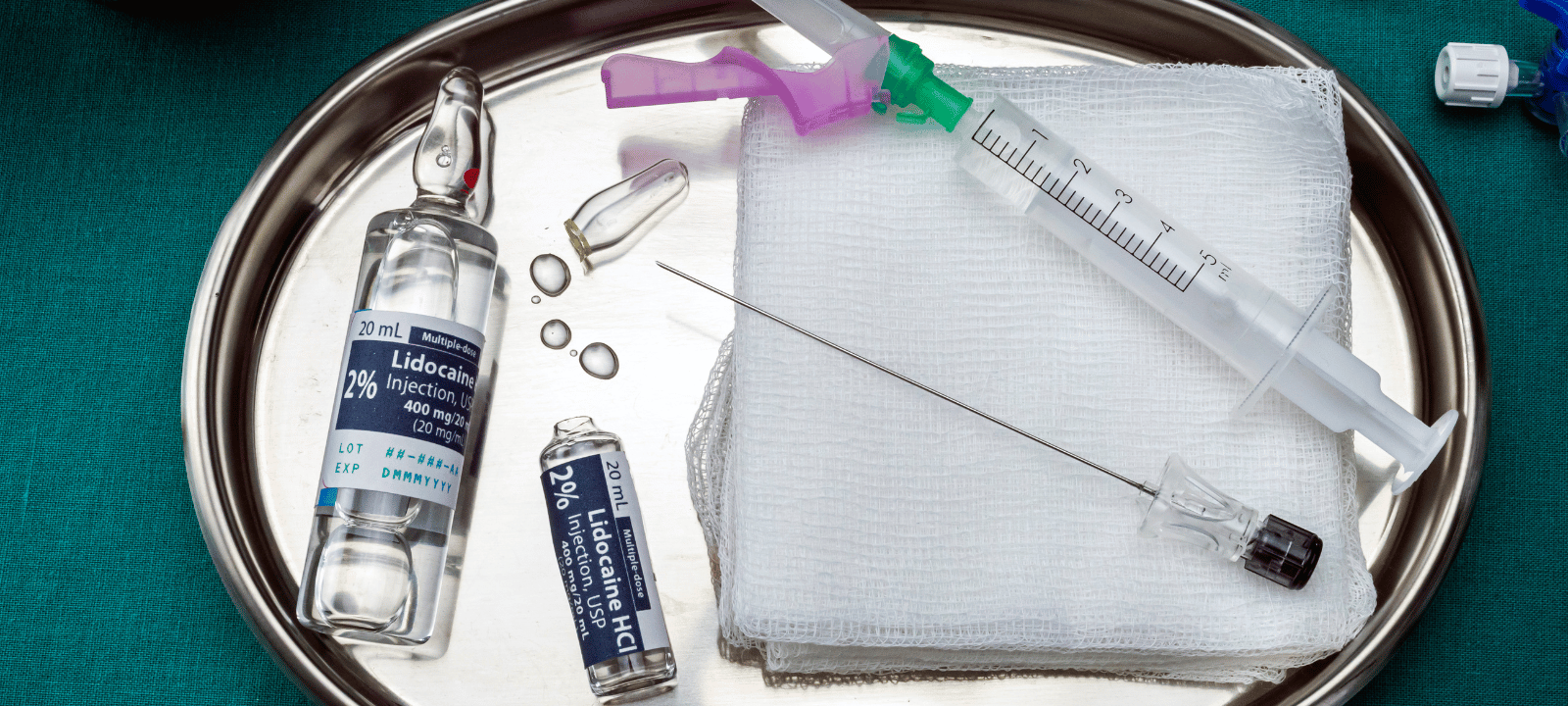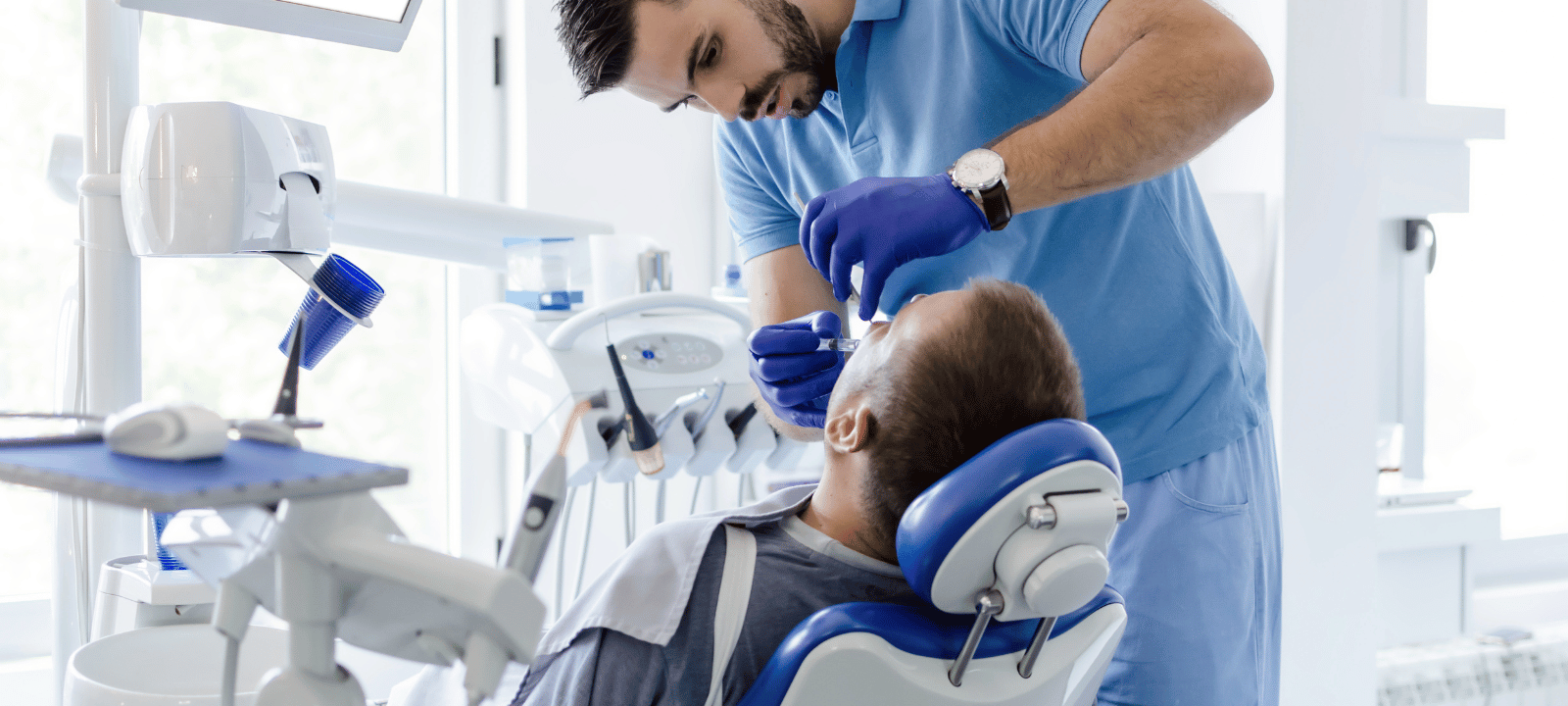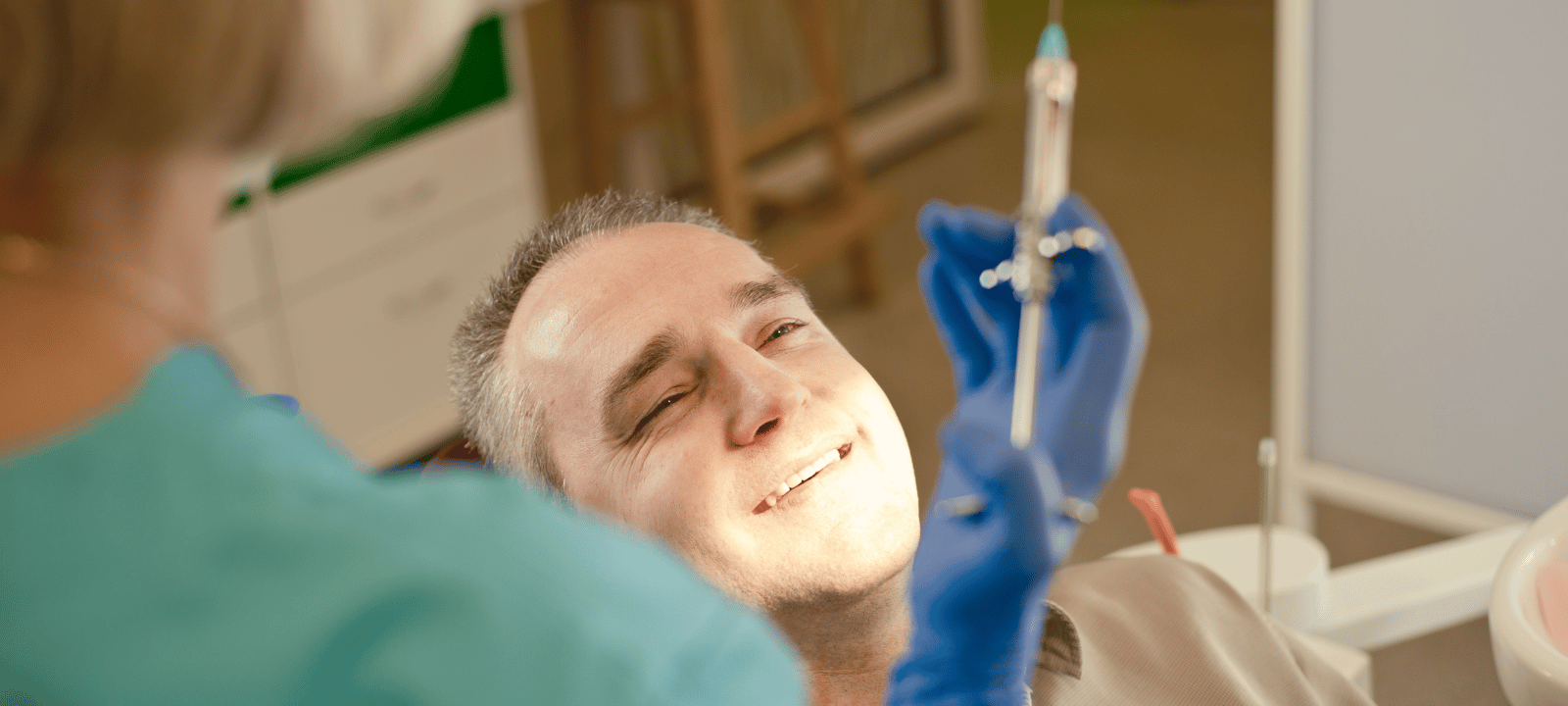
Many people have wisdom tooth extractions at some point in their lives since it is a regular dental procedure. These third molars often cause problems such as pain, infections, and crowding, requiring their extraction. Anesthesia is crucial in ensuring a comfortable experience during wisdom teeth removal. This blog article examines the many alternatives accessible for anesthesia and deliberates on the aspects that should be considered when deciding.
Understanding Your Options

Local Anesthesia:
1. Definition and explanation of how it works:
A numbing agent is injected locally into the treatment region during local anesthesia. It blocks the nerve signals that transmit pain sensations to the brain, ensuring a pain-free procedure.
2. Advantages and benefits of choosing local anesthesia:
Choosing local anesthesia offers several advantages. It allows for targeted pain relief, ensuring that only the immediate area around the wisdom teeth is numbed. This means you remain awake and aware throughout the procedure while feeling no pain. Local anesthesia also has a shorter recovery time compared to other options.
3. Potential side effects or considerations:
There are minimal side effects associated with local anesthesia. However, some individuals may experience temporary numbness, tingling, or swelling around the injection site. It is essential to inform your dentist or oral surgeon about any allergies or sensitivities you may have to anesthesia medications.
Sedation:
1. Definition and explanation of how it works:
Intravenous (IV) sedation involves the administration of sedative medications through a vein in your arm or hand. It induces deep relaxation and may cause temporary amnesia, making the procedure seem to last only a few minutes.
2. Advantages and benefits of choosing IV sedation:
Individuals experiencing moderate to severe anxiety or wanting to remain oblivious to the therapy may find intravenous (IV) sedation a viable option. It provides a heightened level of comfort and relaxation, allowing the dentist or oral surgeon to perform the extraction efficiently. Additionally, IV sedation enables the administration of other pain medications if needed during the procedure.
3. Potential side effects or considerations:
While IV sedation is generally safe, it may have some side effects, such as drowsiness, dizziness, or nausea. The presence of a responsible adult during transportation to and from the dental office and adherence to the post-operative instructions given by the dentist or oral surgeon is of utmost importance.
General Anesthesia:
1. Definition and explanation of how it works:
General anesthesia involves using medications to induce a state of unconsciousness, eliminating all sensations of pain and awareness. It is typically administered through inhalation or intravenous injection.
2. Advantages and benefits of choosing general anesthesia:
General anesthesia is the most profound form and is often reserved for more complex or lengthy procedures. It ensures complete unconsciousness, allowing the dentist or oral surgeon full control over the extraction process. It is particularly beneficial for patients with severe dental anxiety or those with medical conditions that may make other forms of anesthesia less suitable.
3. Potential side effects or considerations:
General anesthesia carries a slightly higher risk compared to other forms of anesthesia. Potential side effects may include nausea, vomiting, sore throat, or grogginess upon waking up. To ensure your safety, it is crucial to have a thorough medical evaluation before undergoing general anesthesia.
Factors to Consider When Making a Decision

Choosing the proper anesthesia for wisdom teeth removal depends on various factors:
Complexity of the Procedure:
The complexity of the extraction plays a significant role in determining the type of anesthesia needed. Simple extractions may only require local anesthesia, while more complex cases may benefit from IV sedation or general anesthesia.
Anxiety Levels:
If you experience high anxiety levels or dental phobia, IV sedation or general anesthesia may be suitable options to help you feel more relaxed and comfortable during the procedure.
Medical History:
The kind of anesthetic should consider your medical history, including any allergies, sensitivities, or underlying health concerns. Certain medical conditions may require specific anesthesia or additional monitoring during the procedure.
Personal Preference:
Ultimately, your personal preference and comfort level should guide your decision. Discussing your concerns and preferences with your dentist or oral surgeon during the consultation is crucial to ensure that the most appropriate anesthesia option is chosen.
Consult with Your Dentist/Oral Surgeon

Importance of discussing anesthesia options during the consultation:
It is essential to discuss the available anesthesia options with your dentist or oral surgeon during your consultation. They will evaluate your specific case, considering your medical history, complexity of the extraction, and anxiety levels, to recommend the most suitable anesthesia option.
Questions to ask about each type of anesthesia:
Consider asking your dentist or oral surgeon these questions to make an informed decision:
– How will each type of anesthesia affect my comfort during the procedure?
– What are the potential risks and side effects associated with each option?
– How long is the recovery time for each type of anesthesia?
– Are any additional costs or insurance considerations associated with specific anesthesia options?
– How will the choice of anesthesia impact the overall success of the procedure?
Addressing any concerns or fears you may have:
If you have any concerns or fears about anesthesia, discuss them with your dentist or oral surgeon. They can provide reassurance, answer your questions, and help alleviate your anxiety.
Preparing for Wisdom Teeth Removal

Following pre-operative instructions provided by your dentist/oral surgeon:
To ensure a smooth and successful procedure, following any pre-operative instructions provided by your dentist or oral surgeon is essential. This may include guidelines on fasting, medication use, and any necessary preparations before the surgery.
Fasting guidelines before surgery, if applicable:
If your procedure requires general anesthesia or IV sedation, you may be required to fast for a certain period before the surgery. This is to prevent any complications associated with anesthesia and to ensure your safety during the procedure. Follow your dentist or oral surgeon’s fasting guidelines closely to avoid unnecessary risks.
Day-of-Surgery Experience
What to expect during the procedure using different types of anesthesia:
The procedure’s specifics will differ based on the anesthesia type chosen. You will be awake and aware of local anesthesia, feeling no pain. IV sedation will induce deep relaxation, and you may have little memory of the procedure. General anesthesia will result in complete unconsciousness, and you will not be aware of the surgery.
Post-procedure recovery process under different anesthetic methods
The recovery process will also vary depending on the type of anesthesia used. With local anesthesia, you can expect minimal downtime and a quick recovery. With IV sedation or general anesthesia, you may experience some drowsiness and require a more extended recovery period. Following your dentist or oral surgeon’s post-operative instructions is essential to ensure proper healing.
Conclusion
It is essential to consult with your dentist or oral surgeon to choose the proper anesthesia for wisdom teeth extraction. It’s vital to consider various factors, such as the complexity of the procedure, your anxiety levels, medical history, and personal preferences, when making this decision. Engaging in a thorough discussion about your concerns and asking pertinent questions will help ensure a comfortable and successful experience.
Always adhere to any pre-operative and post-operative instructions provided by your dental professional. For personalized recommendations, please consult with your dentist or oral surgeon. This blog post offers general guidelines and should not substitute for professional advice. Trust in Charter Anesthesiology for your anesthesia needs.




